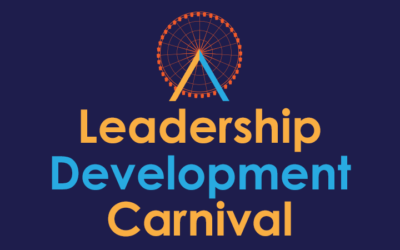If you’ve been hanging out wondering who will win the battle to make the War on Women (WoW) their election year issue, you’re probably still waiting. Last I checked, both sides were pointing their finger at the other for impinging on women’s rights in some form. I don’t think this is a fight either party will win, do you? Women are so much more than a voting block; we’re the other half of a partnership equation with men that delivers quantitative and qualitative benefits to any system that engages us – conservative, liberal, economic or social. While this truth may be disappointing to the Republicans and Democrats this election year, it’s really wonderful news for the rest of us.
I’ve written before about how women in the U.S. workforce improve financial performance when they penetrate leadership positions beyond token numbers (i.e., 30% or more), but the data on women and healthy cultures extends far beyond the U.S. business sector.
A Quantity Argument: Women and Money
As the U.S. workforce data indicates, when women play a strong role in leading any economic enterprise, results are strong and register on multiple metrics. In the Global Fortune 500, women on boards help produce shareholder return, employee retention and other productivity gains. McKinsey calls bringing women in leadership a fundamental economic competitiveness issue. Dominic Barton, McKinsey’s Managing Director puts it this way, “If we do not increase the participation rate of women in the workforce, our GDP growth will be less… 25% of the GDP that we have today comes from women coming into the workforce” over the last 40 years. Reading this, you’d think that bringing women into business leadership is a first world issue, but it’s not.
The World Bank has found the exact same benefits result from gender balance in developing economies as well. The World Bank tracks increases in GDP just like the first world, but also sees improvements in agricultural output and child mortality rates, metrics as important in those economies as Return on Equity is to ours. “Eliminating barriers preventing women from entering certain sectors or occupations would … increase output per worker by 13 to 25 percent,” the World Bank reports.
Some of this data results from simply taking women off the sidelines of the formal economy and including them in activities we measure and call “the economy”. However, stopping at this quantitative argument would be doing a disservice to women and to our broader human culture. Many of the gains above stem from qualitative impacts women have on group decision-making when they partner with men to make things happen. Women’s qualities support healthy cultures beyond business as well.
A Qualitative Argument: Women and Peace
Most women bring a particular talent for “soft skills” to any endeavor, whether measured in dollars and cents or harmonious human relations. Leadership literature is now bursting with new appreciation for the balance of soft and hard skills (in both genders!), and while these themes appear often in The Harvard Business Review, as we might expect, the interesting fact is that we see the same themes coming from the United Nations and other organizations establishing best practices in security and peacekeeping efforts.
“Women bring different priorities to the table,” says Ambassador C. Steven McGann, Vice Chancellor of the College of International Security Affairs at the National Defense University (NDU). He notes that female engagement teams accompanying combat troops often have the ability to prevent physical confrontation because they focus on the kinds of factors that are most likely to win “hearts and minds.” The Ambassador is developing curriculum for implementation of the U.S. National Action Plan on Women, Peace and Security and – putting action behind his words – is successfully recruiting women from around the globe to obtain their masters’ degrees through the CISA program.
For proof that the presence of women can help deescalate the potential for violence, we can look to the experiences of US troops working to rebuild the Afghanistan villages, the United Nations working to bring women into positions of power and safety and the day-to-day experiences of our own beat cops. But perhaps one of the most moving testaments are the women of Liberia who recently used peaceful protests to bring bloody warlords to the negotiating table and kept them there until they found their way to peace.
Gendership as a Universal Force
Women are a key resource for creating healthy cultures in all sectors around the world. While many hear efforts to support women’s entry into leadership as an effort to “downgrade men,” more and more of us working to bring this about want nothing of the sort. We seek Gendership cultures where women and men partner on balanced teams that respect the full diversity of leadership style and experience – and reap the benefits, both soft and hard. Women are a universal force for change. If you’re not already leading a gender-partnered team, develop a strategy to be doing so quickly. You’ll be glad you did!
This post originally appeared on the National Journal.






